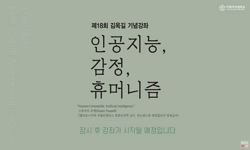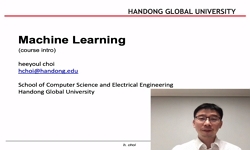The application of new technologies, such as artificial intelligence (AI), to science affects the way and methodology in which research is conducted. While the responsible use of AI brings many innovations and benefits to science and humanity, its une...
http://chineseinput.net/에서 pinyin(병음)방식으로 중국어를 변환할 수 있습니다.
변환된 중국어를 복사하여 사용하시면 됩니다.
- 中文 을 입력하시려면 zhongwen을 입력하시고 space를누르시면됩니다.
- 北京 을 입력하시려면 beijing을 입력하시고 space를 누르시면 됩니다.
https://www.riss.kr/link?id=A109210285
-
저자
Kocak Zafer (Department of Radiation Oncology, Trakya University School of Medicine, Edirne, Türkiye.)
- 발행기관
- 학술지명
- 권호사항
-
발행연도
2024
-
작성언어
English
- 주제어
-
등재정보
KCI등재,SCI,SCIE,SCOPUS
-
자료형태
학술저널
-
수록면
1-11(11쪽)
- DOI식별코드
- 제공처
-
0
상세조회 -
0
다운로드
부가정보
다국어 초록 (Multilingual Abstract)
The application of new technologies, such as artificial intelligence (AI), to science affects the way and methodology in which research is conducted. While the responsible use of AI brings many innovations and benefits to science and humanity, its unethical use poses a serious threat to scientific integrity and literature. Even in the absence of malicious use, the Chatbot output itself, as a software application based on AI, carries the risk of containing biases, distortions, irrelevancies, misrepresentations and plagiarism. Therefore, the use of complex AI algorithms raises concerns about bias, transparency and accountability, requiring the development of new ethical rules to protect scientific integrity. Unfortunately, the development and writing of ethical codes cannot keep up with the pace of development and implementation of technology. The main purpose of this narrative review is to inform readers, authors, reviewers and editors about new approaches to publication ethics in the era of AI. It specifically focuses on tips on how to disclose the use of AI in your manuscript, how to avoid publishing entirely AI-generated text, and current standards for retraction.
동일학술지(권/호) 다른 논문
-
In This Issue on 26-August-2024
- 대한의학회
- Yoo Jin-Hong
- 2024
- KCI등재,SCI,SCIE,SCOPUS
-
- 대한의학회
- Jung Sun Wook
- 2024
- KCI등재,SCI,SCIE,SCOPUS
-
First-in-Human Evaluation of a Polymer-Free Everolimus-Eluting Stent Using a Titanium Dioxide Film
- 대한의학회
- Sim Doo Sun
- 2024
- KCI등재,SCI,SCIE,SCOPUS
-
Strategies on Reducing Wordiness to Enhance Readability in Academic Writing
- 대한의학회
- Kojima Takako
- 2024
- KCI등재,SCI,SCIE,SCOPUS








 KCI
KCI






